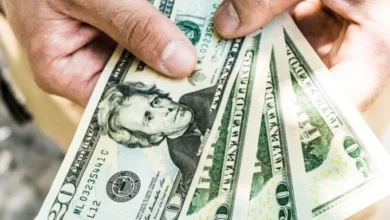Extended Warranty — Good Deal or Rip-Off?
Recently, I stopped into a popular toy store to get a little something for my grandkid, Sam. Yes, I am one of those grandmothers. We found the cutest ever toy shaving kit, just perfect for bath time. The price was under $10. At checkout, and without missing a beat, the sales clerk inquired if I would like to add an extended warranty for just $4.79. Seriously? I laughed. She winced. I apologized, but really, I couldn’t help it.
An extended warranty sounds like a good thing, and that’s because it’s designed that way. While I cannot say that every extended warranty would be a rip-off, that’s the way I want you to start thinking of them. Every time you are offered an extended warranty, think: rip-off! Then, if you have doubts, make that warranty prove to you otherwise.
FAILURE RATES
Products for which there is an extended warranty always come with a manufacturer’s warranty. We know that if a product is going to fail, most of the time it happens at the start of that product’s life, not in the time after the original warranty expires. That means you do not need the extended warranty. As a rule, rely on the warranty that comes with the product. Then rely on your own independent research.
PROFIT MARGINS
Ever wonder why retailers are so diligent in offering extended warranties? Wonder no more. It’s all about — now, here’s a real shocker — money. Extended warranties average a 70% profit for the retailer. Plus, if they can get you to finance the cost of the extended warranty, the retailer ends up profiting even more.
Suppose you buy a $750 extended warranty on a new automobile, and you include it in the amount to be financed. Here’s an estimate of the dealer’s profit: The dealer will receive $764 from you, including interest you will pay on the financed extended warranty after taking into consideration the 30% payout on claims. Now do you see why retailers push their extended warranties?
Here’s a novel idea: Instead of buying extended warranties, set up your own “Repair & Maintenance” savings account for all of your fixed assets — cars, boats, RVs, appliances, toy shaving kits and so on. Now, make payments to your own extended warranty program every month. That way, if you do need major repairs once the regular warranty expires, you will have the money set aside and ready to go.
On the other hand, if it turns out you never require major repairs (statistics are in your favor, by the way), the “extended warranty” funds become your profits, not the retailers’.
On a personal note, there are only two products I have and will continue to buy the extended warranty for, because both of these are notorious for failure after the manufacturer’s warranty: Apple products (iPhone, iPad, MacBook, Mac Pro and so on) and treadmills. Maybe I am the only one who beats up my electronic devices, but that’s a pretty solid rule for me.
As for treadmills, my experience and research suggest they are also notorious for breakdown with extended use. You should create your own, well-thought-out, very short list of items for which an extended warranty may be a wise decision. Then stick to it.




